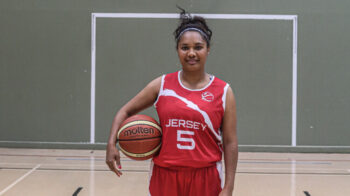INCLUSION IN SPORT
RELIGION OR BELIEF

Data tells us in general, people who do not practice a religion are more likely to be physically active compared to those who do. Although data does show some faith groups are more physically active than others; such as Buddhist, Christian, Jewish or Sikh compared to people who practice Islam.
The type of sport and physical activity that people participant in is also different between faith groups. Data highlights that for some faith groups there is a much bigger difference between men and women participating in sport and physical activity which is due to cultural expectations around what they should wear and how they behave. These differences are also highlighted between ethnicities, which emphasises the strong relationship between faith and ethnicity, in which culture plays a big part.
For sports organisations, it is not necessary to understand the detail of every religion in order to be inclusive; but understanding the different barriers and motivators to participating in sport and physical activity and having the openness to cater and adapt to these, is essential.
The Muslimah Sports Association (MSA), which is the largest Muslim women’s sport charity in the UK, published a report which sought to understand the current activity patterns and preferences of British Muslim women, their motivations for taking part and their barriers to getting involved. The research highlighted several key themes, including:
- 43% of Muslim women do not think current sports facilities are appropriate for their needs
- 33% said previous experiences have negatively impacted their participation in sport
- 97% said they want to increase their current participation in sport
- 80% said they would likely to attend women’s only sport sessions if they were available
You can read the full report and find out more information about the organisation online:
MSA_Reserach_Report.pdf (mcusercontent.com)
BARRIERS TO PARTICIPATION
- Restrictions on sporting clothing due to faith e.g. helmet, swimwear
- Training or playing days/times conflicting with religious observations or prayer, for example an individual practicing Islam may need to pray multiple times a day at specific times
- Not providing a safe or appropriate environment for observations and prayer
- Certain beliefs restrict the mixing of cultures or lifestyle differences, which can make typical public sport settings challenging for individuals to get involved in due to the possibility of misunderstandings or conflict
- A lack of understanding/dismissal of beliefs by sport volunteers
- The effect of fasting or dietary requirements on performance
- Insufficient changing facilities
- Sponsors or advertising partnerships that don’t align with religious beliefs e.g. gambling/alcohol companies
STRATEGIES TO ENCOURAGE PARTICIPATION
- Ask your participants how you can make your sport setting a safe, welcoming and inclusive environment for them to be and stay involved
- Set aside a quiet, separated space as a prayer or religious observation area
- Be mindful of session times to avoid clashing with religious gatherings, congregations or key celebrations
- Allow participants to take breaks during practice for religious observation, creating set time for single gender practices or ‘closed to public’ matches
- Adapt kit/equipment and accommodate dress codes in team uniforms
- Make wet towels available for fasting players to cool down when they are unable to hydrate
- Recognise key religious holidays or festivities and demonstrate respectful celebration in solidarity of participant’s beliefs
It is important when making adaptations, the trust and respect of all participants is maintained. Everyone should be included when adjusting or developing existing offers or processes, so that they are educated on why the changes are important.
It is important to remember every religion and belief is different, which is why a one-size-fits all approach does not work. Collaboration, respect and partnership-working is key to creating an inclusive sport setting. This can be done by asking questions and listening to individuals and their faith groups. Holding focus groups or collaborating with charities who support religious communities is an easy and quick way to set an inclusive president and make small changes for a big impact.
